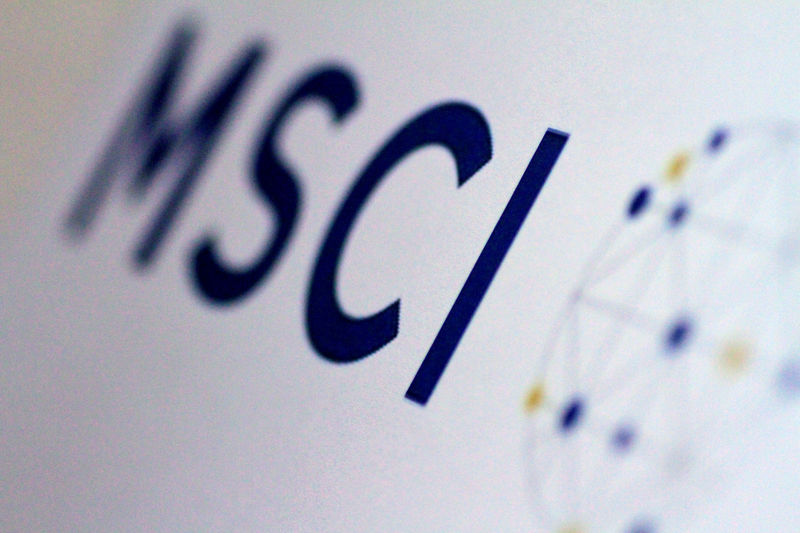By Simon Jessop and Carolyn Cohn
LONDON (Reuters) - MSCI (N:MSCI) published the environmental, social and governance (ESG) ratings of more than 2,800 companies on Monday, giving all asset managers more detail to make their investment decisions.
A growing number of investors across the world are factoring ESG risk into their decision-making, amid a growing belief that companies with a good rating will be better-run and produce stronger returns with lower risk.
The ratings provider said in a statement it had made public on its website the ratings on the companies in its All-Country World Index (MIWD00000PUS) "to help ... identify the most financially relevant ESG risks and opportunities".
Total assets invested using some reference to ESG data hit $30.1 trillion across the world's five major markets at the end of 2018, the Global Sustainable Investment Review said, up from $22.8 trillion in 2016.
MSCI, which awards companies an ESG rating based on 37 criteria such as corporate governance and carbon emissions, said it would release data on more companies in 2020, taking the total number with public data to 7,500.
While MSCI will make each company's scorecard free to access, its paying clients will still have access to a much deeper level of analysis.
The index group gives companies a rating from triple-A to triple-C based on their exposure to ESG risks and their management of them relative to similar companies.
Among those released by MSCI on Monday, Facebook (O:FB) and Alibaba (N:BAB) both have a BBB rating, while Google's Alphabet (O:GOOGL) is rated AA.
Meanwhile mining company Glencore (L:GLEN) has a BB rating and rival Vedanta (NS:VDAN) has a CCC rating.

The ratings are constructed using 1,000 data points from the companies themselves as well as alternative data sets and are reviewed weekly.